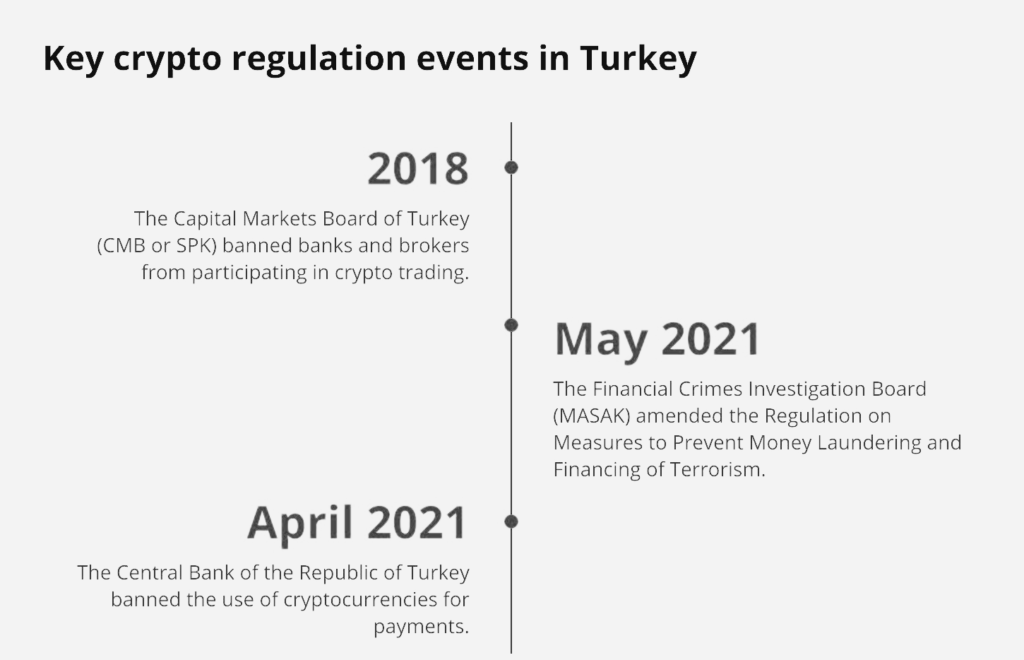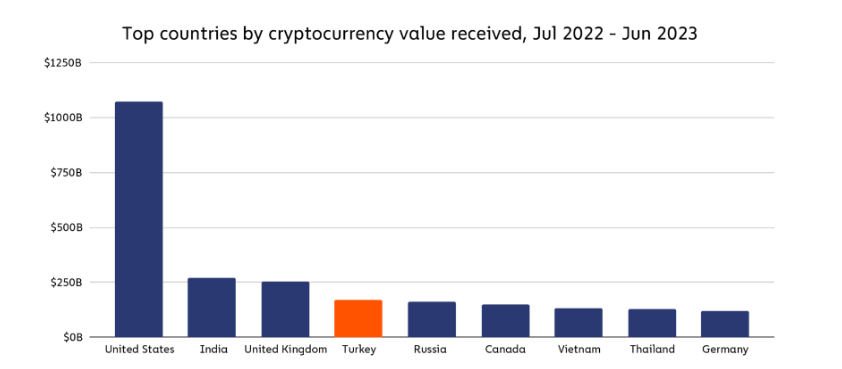ARTICLE AD BOX

Anticipated Crypto Regulations: What to Expect
Turkey, renowned as one of the world’s largest cryptocurrency economies, is on the brink of introducing legislation aimed at regulating the burgeoning crypto market. While the process was expected to commence early in 2024, the Turkish parliament is yet to provide updates on the status of this crucial development.
Current Regulatory Landscape: Navigating Turkey’s Crypto Realm
Despite the absence of formal crypto legislation, Turkey has implemented some “light” regulations governing the cryptocurrency landscape. Notably, regulations initiated by the Central Bank of the Republic of Turkey in 2021 restrict cryptocurrency holders from utilizing digital assets like Bitcoin for transactions due to their non-legal tender status. Additionally, Anti-Money Laundering (AML) measures overseen by the Ministry of Finance’s Financial Crimes Investigation Board require exchanges to adhere to Know Your Customer (KYC) protocols to prevent illicit financial activities.

Turkey’s Crypto Market: A Global Player
Turkey emerges as a significant player in the global cryptocurrency arena, boasting the fourth-largest crypto trading market worldwide. With an estimated trading volume of $170 billion, Turkey surpasses countries like Russia, Canada, Vietnam, Thailand, and Germany. Notably, the country witnessed a surge in crypto adoption, with studies indicating a doubling of adoption rates in recent years, reaching an impressive 40%.
 Source: Chainalysis
Source: ChainalysisLegislative Objectives: Addressing Key Concerns
Turkey’s impending crypto legislation aims to address several critical areas within the crypto ecosystem. Foremost among these objectives is the regulation and licensing of crypto exchanges, aimed at defining the responsibilities and liabilities of virtual asset service providers (VASPs).
Moreover, the legislation seeks to enhance investor protection measures, particularly in light of recent incidents such as the collapse of major local exchange Thodex. Additionally, the bill is poised to establish a legal framework for crypto taxation, addressing concerns regarding transaction taxes and income declaration requirements.
Timeline and Expectations: When Will the Legislation Surface?
Despite anticipation for early progress, the timeline for the introduction of Turkey’s crypto legislation remains uncertain. Speculations link the potential release to the upcoming meeting of the U.S. Office of Foreign Assets Control in June, with implications for Turkey’s status on the Financial Action Task Force’s “gray list.” While some industry observers predict a May release, others suggest potential delays until later in the year, underscoring the complexity of regulatory processes and the evolving landscape of crypto governance.
Main Pointers:
- Current Regulatory Landscape: Despite the absence of formal legislation, Turkey has implemented preliminary regulations governing cryptocurrency activities, emphasizing compliance with AML measures and restrictions on crypto transactions.
- Legislative Objectives: Turkey’s forthcoming legislation aims to regulate crypto exchanges, enhance investor protection measures, establish a legal framework for crypto taxation, and address concerns surrounding real-world asset tokenization.
.png)
 6 months ago
3
6 months ago
3








 English (US)
English (US)